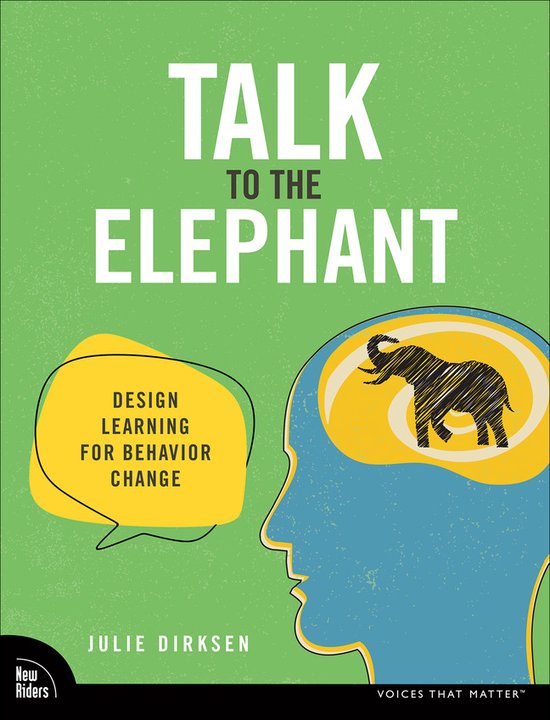
| Taal: | en |
| Bindwijze: | Paperback |
| Oorspronkelijke releasedatum: | 03 oktober 2023 |
| Aantal pagina's: | 304 |
| Hoofdauteur: | Julie Dirksen |
| Hoofduitgeverij: | New Riders Publishing |
| Product breedte: | 175 mm |
| Product hoogte: | 11 mm |
| Product lengte: | 225 mm |
| Verpakking breedte: | 175 mm |
| Verpakking hoogte: | 11 mm |
| Verpakking lengte: | 225 mm |
| Verpakkingsgewicht: | 489 g |
What do you do when your learners know what to do but still aren't doing it?
Training is created with the goal of changing learners' behaviors, but anyone who has created learning experiences knows that there's a big gap between knowing and doing. You can create an engaging learning experience that informs and helps people remember, but often those people go back to their regular world and continue to do things the same way they always have.
In the last few decades, the fields of psychology, behavioral economics, and other behavioral sciences have brought an enormous amount of scientific research into helping people with behavior change. Only a fraction of that research has made its way back into learning design.
Talk to the Elephant: Design Learning for Behavior Change shows you how to add critical tools to your learning design toolbox to affect behavior change. You'll find out how to use frameworks and strategies from behavioral science to help you research and analyze challenges, feel more confident that you're solving the right problem, and design and test solutions that can help people with difficult behavior changes.
By the end of this book, you'll be able to